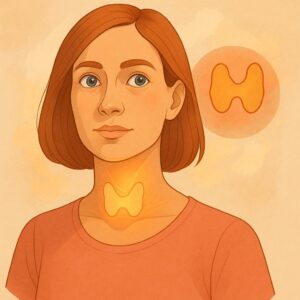Graves’ disease is an autoimmune condition where the immune system overstimulates the thyroid gland, causing it to produce too much thyroid hormone (a condition called hyperthyroidism). These hormones help control how the body uses energy, so when there’s too much, everything speeds up—heart rate, metabolism, and even anxiety.
It’s the most common cause of hyperthyroidism in the U.S., especially in women under 40.

